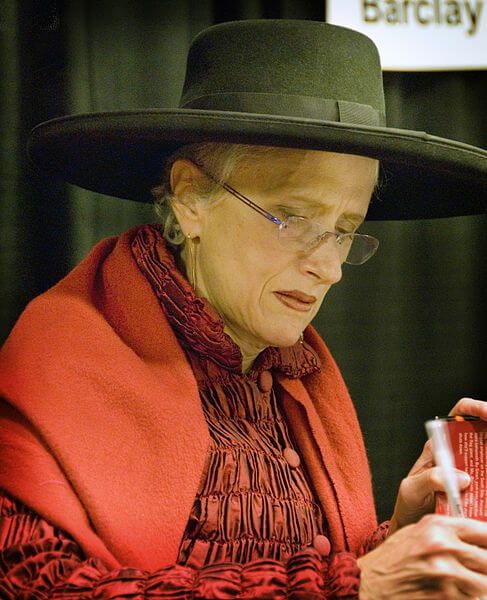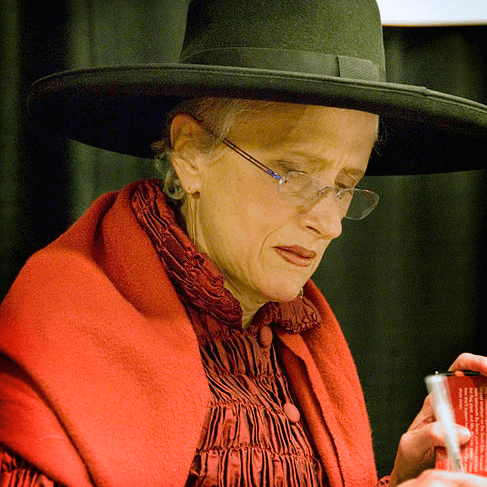Interview with Sara Paretsky
The Strand Magazine: Sara, what are you working on now?
Sara Paretsky: I’m at the very beginning of a new book that will take V.I. into the world of biological warfare.
TSM: Who was the inspiration for V.I. Warshawski?
SP: I had wanted to create a hard-boiled woman investigator from my first reading of Chandler when I was in my early 20s. It wasn’t until I was working in the financial services industry and dealing with all of the volatile changes brought on by women joining the professions in large numbers that V.I. took shape in my mind. I realized I wanted a woman like my friends and me, doing a job that hadn’t existed for women when we were growing up. She would face the same hassles and obstructions that we did but she would not be intimidated by them.
TSM: What did you think of the film with Kathleen Turner?
SP: I found it annoying. They essentially were trying to make a movie for teenage boys instead of for adults, so they had a lot of crude sexual dialogue and shots and a truly incomprehensible storyline. However, I thought Kathleen was a strong and interesting screen presence.
TSM: When you write, do you outline or just write and see where the plot will take you?
SP: I find that outlining backs me into corners that I can’t find my way out of. I know the plot before I start writing but the story arc is something that evolves through the writing process itself.
TSM: I remember once when you and I had breakfast in Chicago. It was my first time in the city and you said, “Andrew, Chicago is much more than this tidy neat little area.” Chicago, of course, is a big part of your works; tell us about the allure for Chicago in your novels?
SP: It sounds as though I was rather insufferable. The allure of Chicago is both its size and the fact that real life takes place in the city’s many and very different neighborhoods. I love knowing that I can imagine a person from any place on the planet with any type of background and that it’s believable to imagine that person in Chicago.
TSM: Tell us about Sisters in Crime—it was basically a grassroots movement and it has grown a lot over the past few years.
 SP: When we started Sisters in 1986, it was because of a series of problems that women mystery writers faced. Some had to do with the condescending attitude toward women mystery writers. Many of us encountered both fans and male writers at crime conferences who assumed we did this as a hobby, not as a serious vocation. Other issues affected our careers in more direct and quantifiable ways. These had to do with lack of reviews of books by women and a much shorter length of time in print and on shelves. When we started the Book Review Project, we found that—adjusting for the male/female ratio in books published—books by men were reviewed seven times as often as books by women (this all refers to crime fiction). Books by women writers stayed in print on average for a third the length of time that books by men did. These data severely affected women’s ability to earn a living as writers. With the Book Review Project, with books in print, and with our presence at ALA and Book Expo, we have come a long way to eradicate this discrimination.
SP: When we started Sisters in 1986, it was because of a series of problems that women mystery writers faced. Some had to do with the condescending attitude toward women mystery writers. Many of us encountered both fans and male writers at crime conferences who assumed we did this as a hobby, not as a serious vocation. Other issues affected our careers in more direct and quantifiable ways. These had to do with lack of reviews of books by women and a much shorter length of time in print and on shelves. When we started the Book Review Project, we found that—adjusting for the male/female ratio in books published—books by men were reviewed seven times as often as books by women (this all refers to crime fiction). Books by women writers stayed in print on average for a third the length of time that books by men did. These data severely affected women’s ability to earn a living as writers. With the Book Review Project, with books in print, and with our presence at ALA and Book Expo, we have come a long way to eradicate this discrimination.
TSM: When you’re not writing, what are some of the things you enjoy doing?
SP: I love walking the lakefront with my dog. I like to read. Lately I haven’t had time to travel for fun but when I can, I enjoy mountain hiking. My cappuccinos have a very high reputation.
TSM: I remember when we chatted last you said you were married to a professor of physics. Have you ever called on his expertise for your writing?
SP: My husband gave me enormous help with my novel Critical Mass,
which was published in 2013 and whose backstory dealt with the quest for the heart of the atom. Over the years, he has also given me general physics advice on explosions, including in my second book, when I blew up a freighter in the Sault Saint Marie locks.
TSM: Have you always wanted to be a writer? When was that moment or that day when you said, I want to do this for a living?
SP: I’ve always written but it wasn’t until after I’d published my third novel that I thought I could do it for a living.
TSM: The publishing industry is journeying as a whole into uncharted territory with digital books taking a bite out of sales of material books, and bookstores are closing down. What do you think the future holds for our industry?
SP: I’m afraid I can only quote Mort Sahl: “The future lies ahead.” If things continue as they have done for the last six years, it’s going to be almost impossible for all but a tiny handful of writers to make a living from their work. We writers need to do more to support each other in this very turbulent period.
TSM: You care a lot about social justice and that is reflected in your books, but it is never obvious to the point where readers say, “Oh, here goes, I’m only interested in the plot and yet the author is giving me a message.” How do you manage to write books that have a social message without compromising the pacing or the plot?
SP: Thank you for that very kind compliment. My writing is driven by my love of stories and so I try to remember to keep the story in the foreground. These days the level of social injustice is so extreme, at least in my view, that it is hard not to be on a soapbox while I’m writing.
TSM: What was it like to write two stand-alone novels, Bleeding Kansas and Ghost Country?
SP: I wrote those two novels because I had stories I wanted to tell that weren’t appropriate vehicles for V.I. It was very challenging to write outside the detective format but I think my writing grew as a result of pushing myself in those new directions.
TSM: Is there any hope for the Cubs? I grew up a Cubs fan since I’d seen WGN on cable and I love Harry Caray.
SP: The Cubs have played 17 games and they are still above .500 so I’m pretty excited about the new season.
TSM: What was it like growing up in rural Kansas? Do you ever visit?
SP: I went to a two-room country school that lacked a lot of the things I wish I’d had as a child, such as foreign language study. The plus, however, was that, with very few students, everyone participated in all activities. We all played in the school band, we all played on the baseball team, we all acted in the school theatricals, and so it was a wonderful place to be a child because the atmosphere was neither competitive nor judgmental. I do visit regularly as one of my four brothers still lives near where we grew up.
TSM: How can you explain the public’s fascination with mysteries? (I am not complaining!)
SP: I think mysteries perform two functions for readers: 1) in a world of random and horrible violence, mysteries offer a template of rationality. Death happens for a reason and in all but the most gruesome novels, the perpetrator is caught and suffers some sort of punishment. 2) We feel a certain protection against violence and death by having the vicarious experience of someone else’s murder. I was fascinated to learn that of the 50 million books sent to American servicemen during World War II, the most popular were crime novels.
TSM: Blacklist was one of my favorite novels. Tell us about the inspiration behind that book?
SP: I wrote Blacklist against the backdrop of the Patriot Act. I felt that we were going through a period similar to the McCarthy era. People were arrested for criticizing Bush in chat rooms. At least one reporter was fired for writing negatively about Bush’s post-9/11 behavior and there were many other similar incidents. There was even a call, mercifully not implemented, for interning Muslim-Americans in the same way that we interned Japanese-Americans in the Second World War. I also wanted to create a villain whose values were similar to my own. Most of my villains are on the political right and I wanted to challenge myself by creating a villain on the political left. The book generated more hate mail than almost anything else I’ve written.
TSM: Writing is, of course, a lonely profession, but what are the perks to being an author?
SP: You set your own hours, you choose your own projects, and you can write in your pajamas if you want.
TSM: Does writing get any easier, or does it become more of a challenge to interest your readers and come up with something fresh?
SP: I find the process of developing storylines more of a challenge now than when I was starting. I guess I worry more about failing. When I was young, I thought I could do anything and now I no longer have that confidence.
TSM: You wrote an afterword to The Brothers Karamazov. Why do you think this book has remained a classic for so long?
SP: Everything is in that novel. There’s a dysfunctional family, a drunken buffoon of a father, a sort of mystery about inheritance. Ivan’s famous tale of the grand inquisitor is one of the great parables about life and religion. In the middle of massive turmoil and injustice—and despite his own poor health, epileptic seizures, and gambling debts—Dostoevsky is able to create a note of hope.
TSM: What past and contemporary authors do you enjoy reading?
SP: I read a lot of mysteries. Some of my contemporary favorites include Peter Lovesey, Rebecca Pawel, Liza Cody, Nevada Barr. I’ve enjoyed discovering some of the forgotten women of noir that Sarah Weinman has been resurrecting. I love the Victorians, particularly Gaskell, Dickens, and Eliot. Austen, of course. I enjoy reading Barbara Pym and Margery Allingham. And many others.

